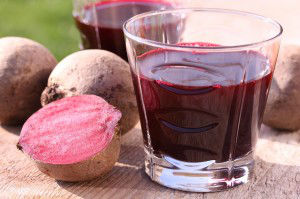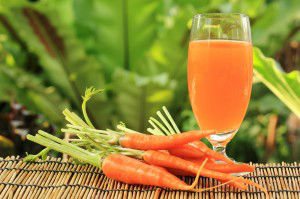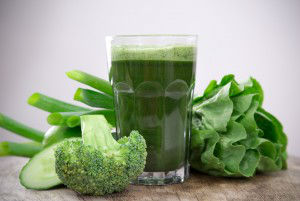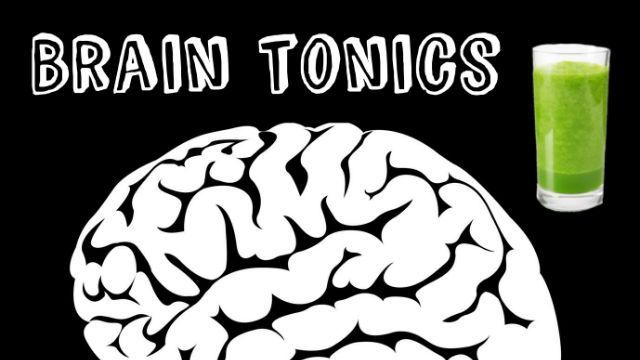
Are you more apt to worry about the aspects of physical health that you can see with your eyes, such as the fact that your size 9 jeans no longer button up, or that you can actually feel your thighs slapping together when you move?
While these are sure signs that you may be carrying a little extra weight, which could increase your chances of developing some serious health problems, there are also other aspects of health that are equally, if not more, important.
Symptoms of malfunction or stress in the body may be subtle, yet it is important to stay in tune with all parts of your body in order to identify when something just isn’t right. Brain health is one of those things that does not present itself with visible symptoms (that we can see with our eyes). Memory, computation, forgetfulness, reaction time, etc… are just some of the brain functions that may be hindered when things upstairs are not functioning as they should.
Like all parts of your body, the brain needs proper fuel to operate efficiently. This is not fast food, junk food, sugar-laden food or highly-processed foodstuff, but rather whole, pure and true food that the body knows how to translate into the kind of fuel it needs to be as healthy as possible.
While eating healthy is important at any age, new research from the University of Eastern Finland highlights just how important a healthy diet during middle age is to preserving brain health.
A study published this year found that those who ate the healthiest diets at the median age of 50 were nearly 90 percent less likely to experience dementia within the 14-year follow up, compared to those who ate the least healthy diets. Healthy diets included such foods as fruits, vegetables, fatty fish and unsaturated fats. Unhealthy diets included foods such as sweets, sugary beverages and sausage.
This latest study is not the only one to find that dietary health during middle age can be linked to dementia. A 2011 study performed at the Karolinksa Institute in Sweden linked middle-aged obese and overweight individuals with a higher risk of dementia later in life. While it is true that not all instances of excess weight are linked to diet – some are rooted in other unrelated health issues – nevertheless, much of the time, a poor diet is the culprit.
Feeding your brain is not as difficult as it may seem. If you stick to a whole food diet, and reduce your dependence on canned, packaged or fast food, your brain will be the happiest. In addition, there are a number of quick and easy tonics that you can drink to super-boost your brain power and ward of neurological decay.
Classed as a powerful superfood by today’s nutritional health experts, beetroots are commonly cooked or sliced thin for salads, are also easy to juice.
Beet juice has long been touted as a blood purifier and blood builder because it helps build red blood cells. Ironically, at one point in history, beet greens were eaten but the roots tossed aside or used as animal feed.
This sweet and earthy juice is an excellent source of vitamins A, B1, B2, B3, C and folate, and is a plus for anyone looking for an easy and quick health boost. Beets contain a plentiful supply of sodium, potassium, calcium, copper, selenium, zinc, iron and manganese.
The beautiful color of beetroots is a sure indication of the powerful antioxidants they contain. Beetroot juice contains both flavonoids and carotenoids that help destroy free radicals, escort toxins from the body, and promote a sharp mind and strong body.
Why your brain loves beet juice: Beets juice has high levels of nitric oxide – a blood gas that increases blood flow. The brain needs ample blood flow for optimal function. One study looked at brain scans of people before they drank beet juice and after. The after scans showed a measurable increase in blood circulation to the brain’s white matter – the part of the brain often damaged in people diagnosed with dementia.
Carrots are rich in various antioxidants, including the carotenoids alpha-carotene, beta-carotene and lutein. Carotenoids are notorious for the vast benefits they have for eye health. Inside the body, beta-carotene is converted into vitamin A by the liver.
Vitamin A is linked to a lower risk of cataracts, glaucoma and macular degeneration, and to healthy eyesight in general. The retina of the eye converts vitamin A into a purple pigment called rhodopsin, which allows for optimal night vision.
Vitamin A also protects the body from oxidative stress, helping to prevent many chronic diseases, and offers a multitude of skin-protecting benefits. These include protection from sun damage, and aiding in the prevention of wrinkles, acne and uneven skin pigmentation. This important vitamin also helps to reduce fat and bile in the liver, keeping it clear of toxic build-up.
Carrots also contain phytonutrients known as polyacetylenes, two of which are falcarinol and falcarindiol. These polyacetylenes have been associated by a body of research to helping to reduce the risk of colon, lung and breast cancers, as well as to potentially fighting the growth of existing colon cancer cells.
The combination of carotenoids and polyacetylenes in carrots is mutually supportive, and makes carrots a powerful superfood in the prevention of heart disease, as well: they help prevent red blood cells from clumping together.
Why your brain loves carrot juice: Yes, carrot juice is great for the eyes, but it is also wonderful for your brain. Deeply colored veggies such as carrots are high in beta-carotene – an antioxidant that fights inflammation. Research is demonstrating that inflammation in one very strong factor in brain deterioration.
Studies have shown that one or two glasses of red wine per day support optimal health. Red wine contains resveratrol, and has a positive effect on blood sugar regulation and fat accumulation prevention. It also provides the benefit of catechins, which increase the body’s levels of ‘good cholesterol.’
To summarize, Julie B. Damp, MD, states, “there are multiple observational studies suggesting moderate consumption of alcohol is associated with decreased incidence of cardiovascular disease, including lower risk of heart attacks.”
Why your brain loves organic red wine: When consumed in moderation, red wine can be an excellent addition to a brain-healthy diet. Resveratrol plays a role in many metabolic functions and helps protect the brain from oxidative damage.
It has also been found to impact brain function by improving communication between cells. There has not been enough research regarding resveratrol supplementation, so avoid purchasing pricey supplements until more is known about this potent antioxidant.
There is some good news for all coffee drinkers out there. Actually, there is a lot of good news. If it seems that you are forever defending your morning cup or two of Joe, here is a little ammunition for you which may send your decaf friends scrambling.
Caffeine has a stimulant effect on the central nervous system which raises metabolism and increases the oxidation of fatty acids. It also mobilizes fatty acids from fat tissues, and there is good evidence that it increases athletic performance.
Type ll diabetes is skyrocketing in America and now afflicts almost 1 in 8 people. Coffee appears to do a good job regulating blood sugar. Numerous studies demonstrate that coffee has been associated with a 23 to 67 percent lower risk of diabetes.
A review of 18 studies involving almost 460,000 participants found that each additional cup of coffee per day lowered the risk of diabetes by 7 percent. Interestingly enough, the more coffee that study participants drank the lower their risk. Researchers claim that people who drink several cups of coffee per day are less likely to develop diabetes.
Why your brain loves organic coffee: Everyone knows that if you want to stay awake you drink coffee, right? Well, we bet you did not know that drinking coffee can also boost your brain power and your mood.
Caffeine blocks the effects that the neurotransmitter adenosine has on the brain. By doing so, the caffeine increases brain activity and the release of neurotransmitters such as dopamine and norepinephrine. Controlled trials have examined the effects that caffeine has on the brain and have found that it improves mood, reaction time, memory and overall cognitive function.
Kermit the frog once said, “it’s not easy being green.” The same thing may be echoed by highly nutritious green smoothies. Many people shy away from green smoothies simply because they are green.
The term ‘greens’ is used rather loosely, but usually refers to leafy greens spanning the brassica (cabbage) and chenopod families. All of these greens are rich in numerous vitamins, minerals and antioxidants, which support optimal health and reduce the risk of many diseases.
Brassica greens, also known as cruciferous greens, include arugula, bok choy, collard greens, kale, mustard greens and watercress. These greens are high in vitamins A, C and K, plus fiber, folate and protein, among many other nutrients. They also contain omega-3 fatty acids, and compounds known as glucosinolates, which have been linked to potent anti-carcinogenic qualities.
Greens in the chenopod family include spinach, Swiss chard and beet greens. Greens in this family are high in vitamins A, C, E and K, and are also a good source of the minerals selenium and zinc.
The antioxidant compounds found in chenopod greens, including carotenoids, have been linked to promoting bone health, as well as to combating aggressive forms of prostate cancer.
Why your brain loves green smoothies: Junk foods, especially foods that contain white flour and refined sugars, tend to clog the mind, making the brain feel somewhat out of focus and cloudy. Drinking a green smoothie can help clear the fog, improving mental clarity, focus, and even boosting creativity by reducing oxidative damage caused by free radicals.
Chlorophyll, the pigment which makes green plants green, closely resembles red blood cells. On a molecular level, red blood cells and chlorophyll are virtually identical except for one atom.
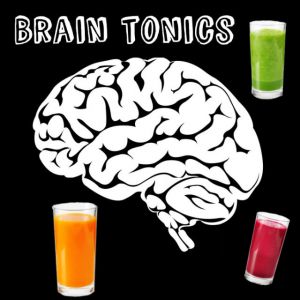 Chlorophyll helps to replenish our red blood cell count by providing a continuous boost of energy to the bloodstream. When our red blood cell count is high, more oxygen can circulate throughout the body, which is key for the proper health and function of the brain.
Chlorophyll helps to replenish our red blood cell count by providing a continuous boost of energy to the bloodstream. When our red blood cell count is high, more oxygen can circulate throughout the body, which is key for the proper health and function of the brain.
So, the next time you have a hard time remembering where you put your keys for the tenth time in a row, or are just feeling foggy in the head, consider a quick brain tonic. Better yet, make these brain tonics part of your regular healthy diet!
-The Alternative Daily
Sources:
http://www.ncbi.nlm.nih.gov/pubmed/1356551
http://onlinelibrary.wiley.com/doi/10.1111/j.1467-3010.2007.00665.x/full
